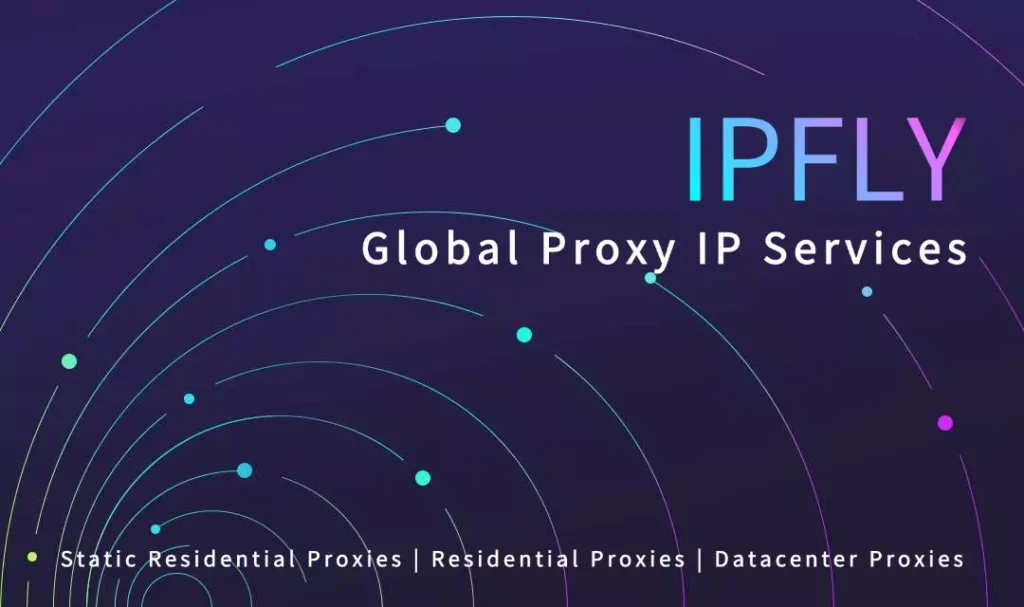
Imagine spending weeks optimizing a client’s website—tweaking keywords, refining content, and building backlinks—only to check rankings and get conflicting results. One minute, your target keyword is on page 1; the next, it’s nowhere to be found. Or worse, you’re hit with a “access denied” message from Google after running a few rank checks. If this sounds familiar, you’re missing a critical SEO tool: rank tracking proxies.
For SEOs, digital marketers, and business owners, rank tracking is the backbone of measuring success. But without the right proxy, your rankings data is unreliable, your efforts are wasted, and you risk getting blocked by search engines. In this guide, we’ll break down everything you need to know about rank tracking proxies—what they are, why they’re non-negotiable, how to choose the best one, and how a trusted service like IPFLY elevates your SEO game.
What Exactly Are Rank Tracking Proxies?
Let’s keep it simple—no tech jargon here. A rank tracking proxy is a specialized tool that acts as a “middleman” between your device and search engines (Google, Bing, etc.). Here’s how it works:
When you check a keyword’s rank directly from your computer, search engines use your real IP address to determine your location. This means you’ll see rankings based on where you are, not where your target audience lives. For example, if you’re in London but your customers are in New York, you’ll get London-based rankings—completely irrelevant to your SEO goals.
A rank tracking proxy solves this by routing your rank check through a remote server with an IP address from your target location (e.g., New York, Tokyo, Berlin). Search engines think the request is coming from a real user in that area, so they serve up the actual local rankings you need.
Unlike generic proxies, rank tracking proxies are optimized for SEO tasks: they’re fast (no lag for quick rank checks), undetectable (search engines don’t flag them as bots), and location-specific (down to cities or regions for hyper-local SEO).
Why Rank Tracking Proxies Are Non-Negotiable for SEO
If you’re still on the fence about investing in a rank tracking proxy, here are 5 reasons it’s a must-have for anyone serious about SEO:
1.Accurate Local & Global Rankings
Local SEO is make-or-break for small businesses, franchises, and regional brands. A rank tracking proxy lets you check how your keywords perform in specific cities, states, or countries—no more guessing. For example, a bakery in Chicago can verify its “best chocolate cake Chicago” rank using a Chicago-based proxy, while a global e-commerce store can track rankings in 50+ countries to measure international SEO success.
2.Avoid IP Bans & Anti-Bot Blocks
Search engines like Google hate “bot-like” behavior. If you run hundreds of rank checks from the same IP address (e.g., using SEO tools like Ahrefs or SEMrush), Google will flag your IP as a spam bot and block access. Rank tracking proxies rotate IPs or use clean, human-like IPs to avoid detection—so you can run unlimited rank checks without interruptions.
3.Scale Your Rank Tracking Efforts
Managing multiple clients, hundreds of keywords, or dozens of websites? A regular IP can only handle so many requests before getting blocked. Rank tracking proxies with large IP pools let you scale up—monitor thousands of keywords, track rankings across multiple search engines, and run frequent checks (daily, hourly) to spot ranking fluctuations early.
4.Bypass Personalized Search Results
Google tailors search results to your browsing history, location, and device—meaning the rankings you see aren’t the same as your audience’s. Rank tracking proxies serve up “anonymous” search results, free from personalization, so you get a true picture of how your website performs for the average user.
5.Track Competitor Rankings Globally
Want to see how your competitors rank in new markets? A rank tracking proxy lets you “virtually” visit any country, check their keyword positions, and identify gaps in their SEO strategy—giving you a competitive edge.
How to Choose the Best Rank Tracking Proxies (6 Must-Have Features)
Not all rank tracking proxies are created equal. A bad proxy will give you inaccurate data, get you blocked, or slow down your workflow. Here’s what to look for when choosing one:
1.Proxy Type: Residential > Data Center (For Accuracy)
Residential proxies: Use real IP addresses from ISPs (internet service providers), mimicking human users. They’re undetectable by search engines and deliver the most accurate rankings—perfect for local SEO and sensitive tracking.
Data center proxies: Hosted on servers, they’re faster and cheaper but more likely to be flagged. Great for large-scale, global tracking where speed matters more than hyper-local accuracy.
The best services (like IPFLY) offer both, so you can switch based on your needs.
2.Global Location Coverage
Look for proxies with servers in 100+ countries and regional/city-level targeting. This lets you track rankings in niche markets (e.g., “dentist in Austin, TX” or “coffee shop in Tokyo”) and global markets alike.
3.Large, Fresh IP Pool
A small IP pool means repeated IP reuse, which increases detection risk. Choose a service with millions of IPs (ideally 50M+) that’s regularly updated to avoid blacklisted addresses.
4.Low Latency & High Speed
Rank tracking tools rely on fast requests to deliver real-time data. Slow proxies cause delays, timeouts, or incomplete rank checks—look for latency under 100ms for smooth performance.
5.Protocol Compatibility
Ensure the proxy supports HTTP/HTTPS/SOCKS5—these are the standard protocols used by popular rank tracking tools (Ahrefs, SEMrush, Serpstat, etc.). Compatibility means no messy setup or tool conflicts.
6.24/7 Technical Support
If your proxy fails during a critical rank check (e.g., before a client report), you need help fast. A reliable service offers round-the-clock support to fix issues immediately.
IPFLY: A Top-Tier Choice for Rank Tracking Proxies
When it comes to rank tracking, IPFLY checks all the boxes—and then some. Designed for stability, accuracy, and scalability, it’s a favorite among SEOs who need reliable rank data without the hassle of bans or inaccuracies.
IPFLY offers three proxy types to fit every rank tracking need:
Static residential proxies: Permanent IPs from real ISPs, ideal for long-term tracking of local keywords (e.g., small business SEO) where consistency matters.
Dynamic residential proxies: Rotating IPs from 190+ countries, perfect for global rank tracking and avoiding detection—with over 90 million IPs, you’ll never run out of fresh addresses.
Data center proxies: High-speed, exclusive IPs for large-scale tracking (e.g., monitoring 1000+ keywords across 50 countries) where speed is a priority.
What makes IPFLY stand out for rank tracking:
-99.9% uptime: No more interrupted rank checks or missed data points.
-Real ISP IPs: Undetectable by Google and other search engines, ensuring 100% accurate, non-personalized rankings.
-Full protocol support: Works seamlessly with every major rank tracking tool—no setup headaches.
-Automatic IP rotation: Dynamic proxies switch IPs with every request, eliminating the risk of bans even with thousands of daily checks.
-Global coverage: Track rankings in 190+ countries and niche regions, from major cities to small towns—critical for local and international SEO.
For SEOs, this means accurate local/global rank data, unlimited tracking scalability, and zero downtime. Whether you’re a freelancer managing 5 clients or an agency handling 50, IPFLY’s rank tracking proxies keep your SEO monitoring smooth and reliable.
Stuck with IP bans from anti-crawlers, inaccessible customs data, or delayed competitor insights in cross-border research? Visit IPFLY.net now for high-anonymity scraping proxies, and join the IPFLY Telegram community—get “global industry report scraping guides”, “customs data batch collection tips”, and tech experts sharing “proxy-based real-user simulation to bypass anti-crawlers”. Make data collection efficient and secure!

Common Mistakes to Avoid With Rank Tracking Proxies
Even with the best proxy, poor usage habits can lead to issues. Here are 4 mistakes to steer clear of:
1.Using Free Rank Tracking Proxies
Free proxies are slow, overcrowded, and shared—they’re almost guaranteed to be detected by search engines. Save time and avoid bans by investing in a premium service.
2.Ignoring Location Specificity
Tracking “plumber in Miami” with a Florida-wide proxy (not Miami-specific) will give you inaccurate data. Always choose city-level targeting for local SEO keywords.
3.Overloading Requests
Even with a good proxy, sending 1000+ requests per minute triggers anti-bot systems. Follow search engine guidelines and space out requests to mimic human behavior.
4.Choosing the Wrong Proxy Type
Using a data center proxy for hyper-local SEO (e.g., “bakery in Portland”) will lead to less accurate results. Match the proxy type to your use case: residential for local, data center for global/scalable.
Wrapping Up: Rank Tracking Proxies = Better SEO Results
Rank tracking is only useful if the data is accurate—and rank tracking proxies are the key to that accuracy. They let you see how your website truly performs for your target audience, avoid bans, scale your efforts, and stay ahead of competitors.
The right proxy turns guesswork into actionable insights. For SEOs who value reliability, accuracy, and scalability, IPFLY’s rank tracking proxies are a game-changer—eliminating the headaches of detection, downtime, and inaccurate data so you can focus on what matters: growing rankings and driving traffic.
If you’re tired of conflicting rank data or getting blocked mid-check, it’s time to invest in a quality rank tracking proxy. Your SEO strategy (and your clients) will thank you.


